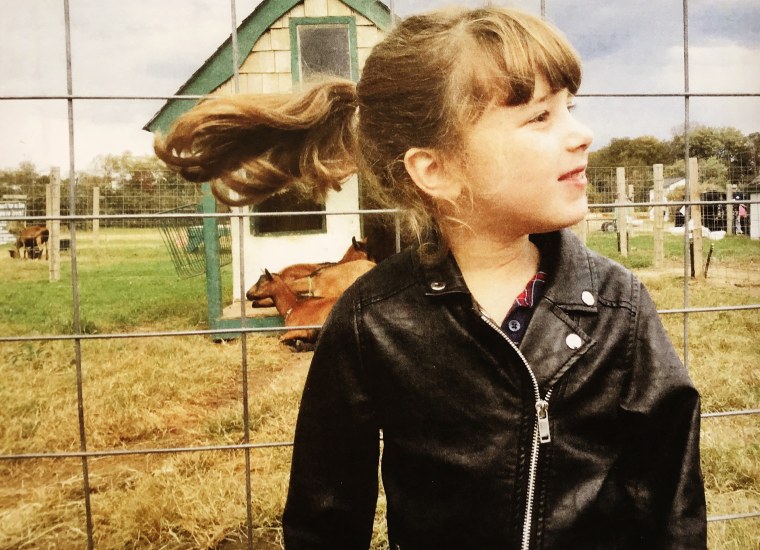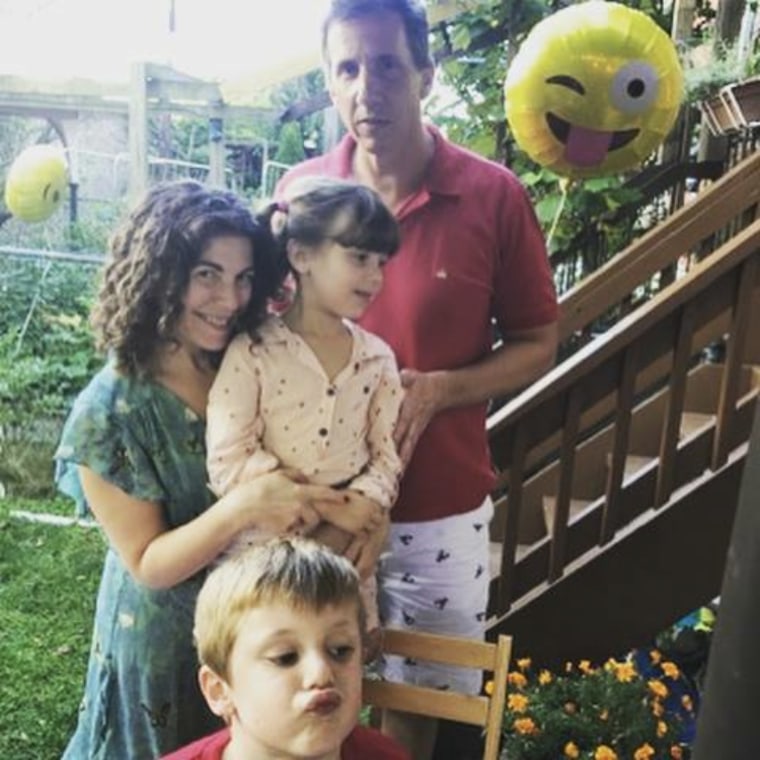Autism. The word had been in the back of my mind for a while, but I still wasn’t ready to apply it to my daughter.
We knew from the time Evelyn was a year and a half that something was wrong. The bright, chubby baby with the dark brown eyes just like mine had hit all of her milestones before her twin brother — rolling over, standing up, crawling.
But then there were the tell-tale signs something wasn’t right — she didn’t look when we called her name, still kept pulling on an electrical cord when we screamed “STOP.” When we visited my parents, there were no smiles or even looks of acknowledgement. Our once chatty baby was sliding deeper into the world of her own imagination.

What followed were evaluations, and finally, a diagnosis. Sitting across from one of the top doctors in the country, I didn’t need her to say the word because in my heart I knew Evelyn had autism. She was almost 2 at the time and but it would take four more years for me to come out of the "autism closet.”
Never miss a parenting story with the TODAY Parenting newsletter! Sign up here.
We didn’t reveal Evelyn’s diagnosis to anyone except family and close friends — not because we were ashamed — but because we wanted to protect her. I knew that once she was labeled “autistic” that would be the way the world would see her. It would be an adjective that always came before her name.
And besides, her symptoms were not completely obvious. With her beautiful, doll-like face, you can’t tell there’s anything “wrong” by looking at her. And many of the typical autistic behaviors — the outbursts and repetitive actions that manifest as aggression in boys, were so different in Evelyn. (Studies show that boys are nearly five times more likely than girls to have autism).

Evelyn was able to pass for “normal.” When she didn’t respond to a stranger’s greeting they smiled and made a comment about her being shy. And when she sang “Pop Goes the Weasel” or “Twinkle Twinkle Little Star” over and over to herself in a soft voice, people commented how adorable it was, unaware that it a self-stimulatory behavior that Evelyn engages in, which keeps her from participating in the world around her.
So while her twin brother spent afternoons at the playground, Evelyn spent hours in home therapy sessions, learning the simple skills that most kids and parents take for granted through the effective ABA (applied behavior analysis). And I constantly danced around the questions — “Where’s the other one?” Or to my son, “Where’s your sister?”
Not being “out” as a mom of a child of autism meant that I didn’t find an autism community. That was OK. A few nights of searching online led me to so many dismal websites and message boards that I feared falling down the rabbit hole of paranoia other parents were experiencing.
This fall, we left our home in Brooklyn and moved to another state so that Evelyn could attend a special school where we think she will thrive. She’s speaking in sentences, is toilet trained, makes eye contact and is incredibly loving to the people closest to her. If she continues to build on her current skills the future will only get brighter for this amazing girl who loves animals and picks up songs after hearing them once (Human League’s “Don’t You Want Me Baby” is a current favorite).
When I heard that Evelyn's school was holding an autism walk to raise funds for the school, I knew we could no longer be silent. After all, if we want people to not just be “aware” of autism, but to actually accept autistic people as valuable members of society, how can we do that in hiding?
If we are to stand up for ourselves, and each other, the only way to do it is to make our presence known and put a face to the word that I spent so much time avoiding. When Evelyn walks into a room, I hope that you will see her as more than just “autistic.”
But on November 5th when we walk with her and her classmates and their parents — our new community —I’ll be ok using the “A” word.
We will be out there together in the sunshine — autistic, radiant — and saying, "It’s going to be okay."
To stand up for Evelyn and other girls (and boys) with autism, donate to our walk.